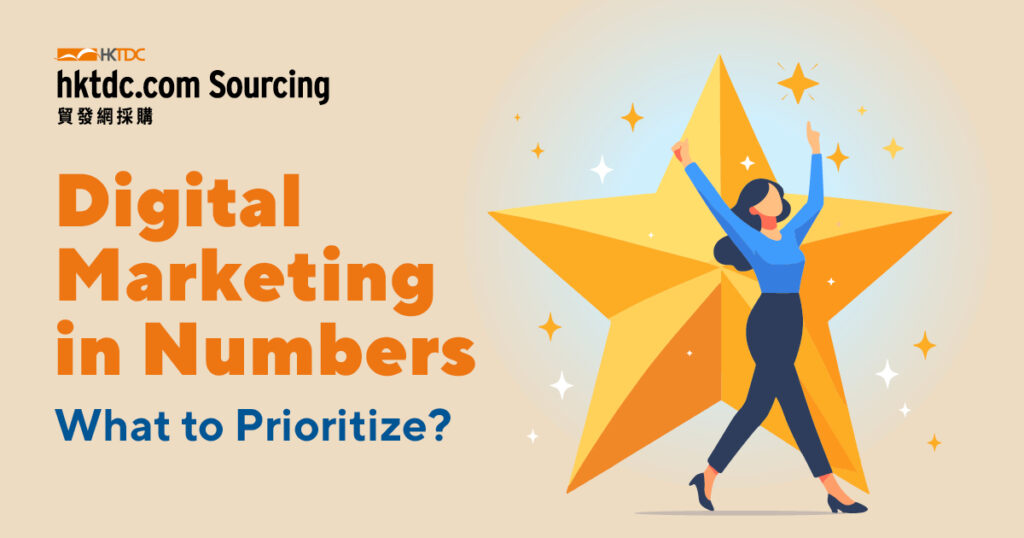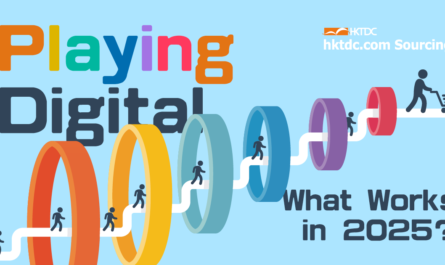Looking to stay ahead in digital marketing as we enter the second half of 2025? This article summarizes all the essential data you need to understand evolving global digital preferences and behaviors, providing rich insights into internet activity, AI adoption, social media preferences, and e-commerce trends.
Discover how these shifts are shaping smarter marketing strategies for the months ahead and how your brand can capitalize on these changes to thrive in a rapidly evolving digital landscape.
Learn More:
Global Digital Marketing in Numbers: Insights for Smarter Strategies
1. Where Do People Visit When They Go Online?
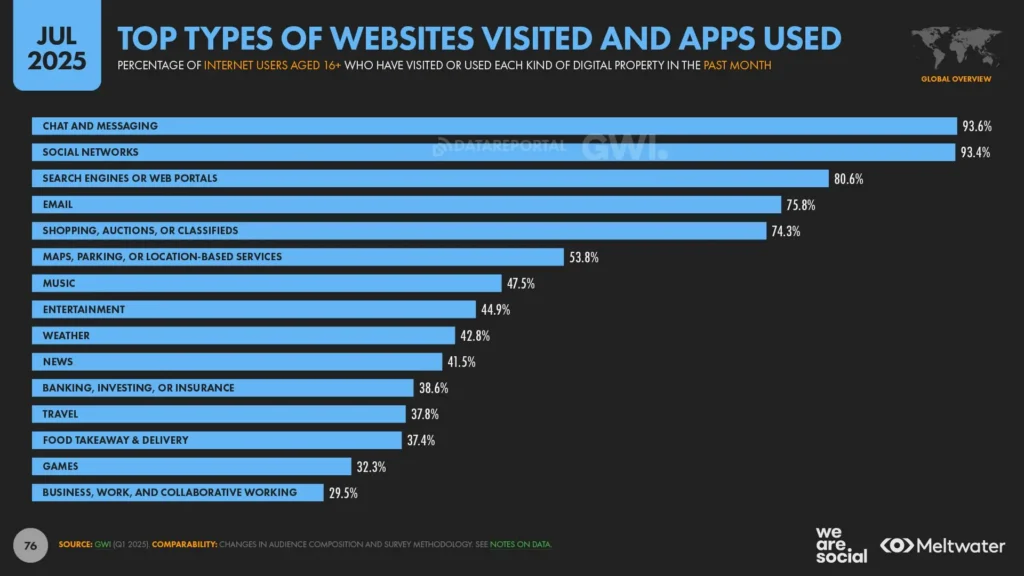
Whether on a PC or a mobile device, people go for chatting and messaging as their main purpose of online activity, with 93.6% doing so to connect with their social networks. At the same time, nearly 81% of internet users aged 16 or above also used search engines or web portals to look for information.
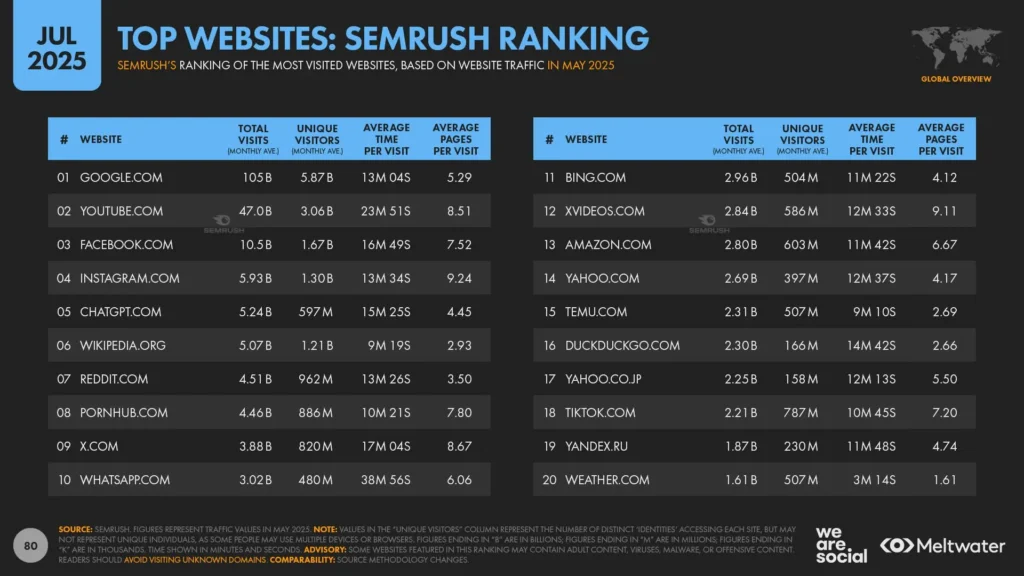
Not surprisingly, Google, YouTube and Facebook continued to dominate the worldwide website traffic according to Semrush’s ranking. Notably, ChatGPT emerged and climbed up to be the Top 5 of the list, indicating a significant surge in AI usage.
2. Which AI Tool Does Most People Use?
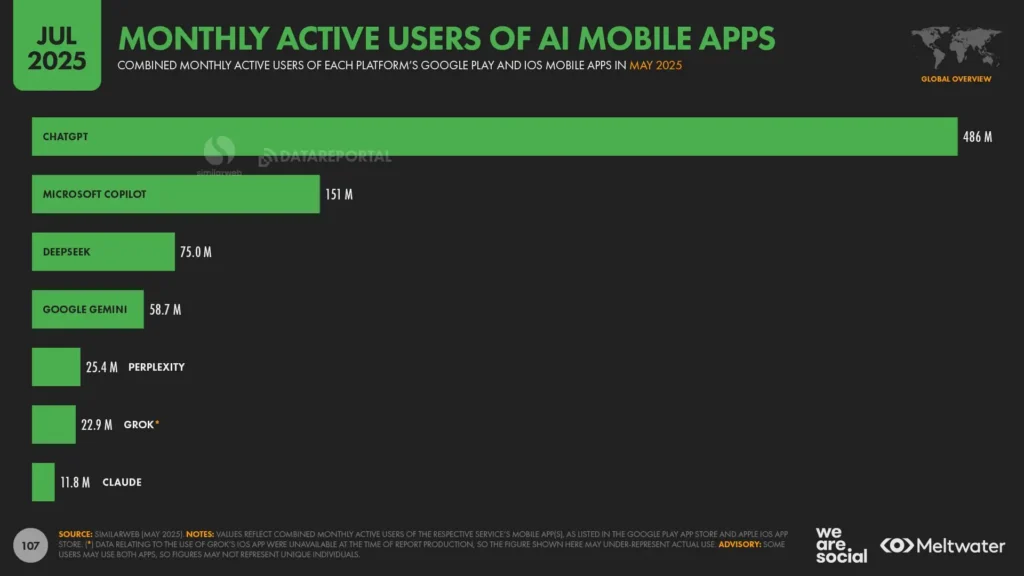
Given the AI popularity, it would be of marketers’ interests to uncover the favourite AI app(s) customers use. As an industry pioneer, ChatGPT comes first, enjoying a combined total of 486 million monthly active users in May 2025. This is closely followed by Microsoft’s Copilot, China’s Deepseek and Google’s Gemini. Marketers and advertisers alike should consider enhancing or optimizing their efforts in AI search results such that your products/brands appear more in the AI dimensions.
3. Are Social Media Still Useful in Marketing Promotions?
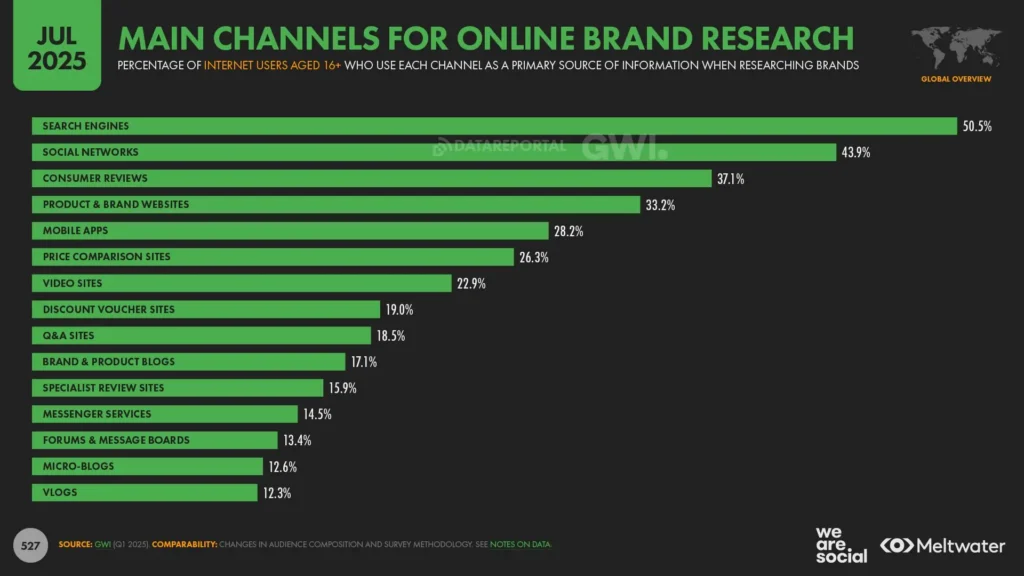
Apart from traditional search engines, internet users rely on their social networks (43.9%) and consumer reviews (37.1%) to look up and research brands online — this is where social media come into play. Apparently, brands should not lose interest in various social media channels for building awareness and reputation.
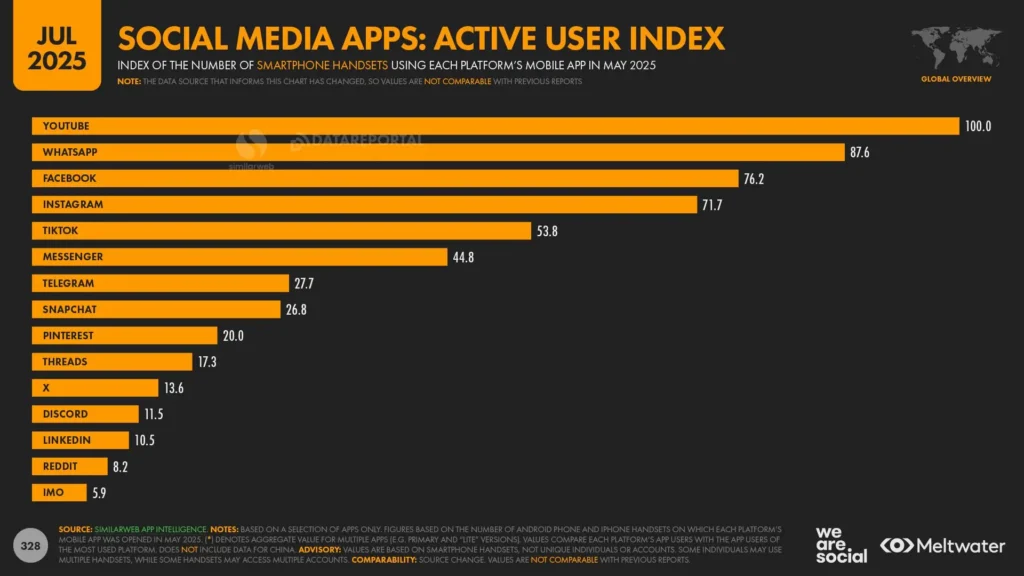
In terms of the social media platforms to use, based on various social media’s mobile apps active user index, YouTube, WhatsApp, Facebook and Instagram are the major battlefields for brands to win in the customer journeys.
Read More:
Build Brand Loyalty: 5 Proven Customer Retention Strategies for Business Growth
On top of effective digital marketing, quality products are also crucial to e-commerce success! Kickstart your sourcing with our e-Marketplace to maximize business advantages today.
Simply click through below banners to get started:
This report is originally published by Meltwater:
Meltwater provides social and media intelligence. By examining millions of posts each day from social media platforms, blogs, and news sites, Meltwater helps companies make better, more informed decisions based on insight from the outside. Learn more at meltwater.com.
Digital Marketing FAQ
1. What is digital marketing?
Digital marketing is the promotion of products, services, or brands using online channels such as search engines, websites, social media, email, and mobile apps. It helps businesses connect with their audience where they spend time online.
2. What are the main types of digital marketing?
- SEO (Search Engine Optimization) – improving website visibility in search engines
- Content Marketing – creating and sharing valuable content
- Social Media Marketing – promoting via platforms like Facebook, Instagram, LinkedIn
- PPC (Pay-Per-Click Advertising) – paid ads on Google, Bing, or social media
- Email Marketing – sending targeted messages to subscribers
- Affiliate Marketing – promoting products through partnerships
- Influencer Marketing – collaborating with online influencers
3. How do I measure the success of digital marketing?
Key metrics include:
- Website traffic
- Conversion rate
- Cost per lead / acquisition
- Engagement rate (likes, shares, comments)
- Return on investment (ROI)



